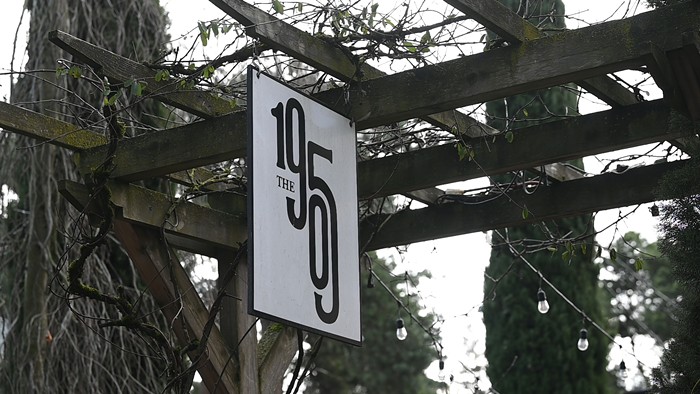SOMEWHERE IN a petrified forest, Jared Mees is having a nervous breakdown. While the gasping protagonist of "W.W.J.B.D." is never actually identified by name, it doesn't take significant detective work to piece together the clues: an emotionally exhausted frontman for an assiduous indie rock band in a Sisyphean struggle that envelopes so many artists on the brink. Given a minute by his bandmates to calm the "chaos" that beats in his chest, Mees is confronted with the blunt reality of the situation, a point he emphasis in the song's wondrous climax: "You're not dying, your soul just can't keep up with the van."
Relentless life in a touring vehicle has always acted as the herd-thinning Darwinian method of separating the longtime lifers from the musical tourists. But while Mees and his loyal band the Grown Children (vocalist Megan Spear, guitarist Javier Madrigal, studio bassist Quilty Kim, drummer Joe Bowden, bassist Jesse Bettis) have left a graveyard of deceased tour vehicles in their wake, their energetic frontman is busy juggling other plates as well. Along with his wife Brianne, Mees is one half of the Tender Loving Empire record label/retail store, where he devotes his waking moments to releasing records (Typhoon, Y La Bamba, and plenty more), manning the register, and getting ink stains on his knuckles with their screen-printing operation. Tender Loving Empire's overwhelming pro-artist, pro-fam-ily, pro-Portland ethos has led Mees to become a father figure to an orphaned lot of local musicians (a "halfway house for wayward boys and girls sometimes," he jokes), even if the 30-year-old Mees is barely any older than those he shepherds.
"We didn't start this to make a million dollars or anything," explains Mees. "When you're running two separate things... I won't lie, it's not easy and it swallows me up some days," Mees says. "I have horrible days where I feel like nobody cares about what I am doing and this is never going to last, and then I have days where it's like, this is all working—everything is working." At his best, Mees is a man perched atop a DIY kingdom of his own creation, and at his worst, he's on his knees battling crippling anxiety alongside an idling tour van. This dichotomy is the central theme behind his finest work to date, Only Good Thoughts Can Stay.
A rambling singer with poetic lyrics that nervously unfurl throughout the course of every song, Mees & Co. open Only Good Thoughts with the noble "Hungry Like a Tiger," where he boasts of "breathing good air through good lungs with a good heart beating," before being consumed by romantic optimism: "We've got those lungs that breathe and sigh/Please just give me the truth and a warm place to lie/and unflinching I'll give you the best years of my life."
"Billy Bird" takes a similar turn, opening with a jubilant bass line and blaring brass section, only to fix its gaze on the fine thread that separates the living and the dead, a song soaked in wet-eyed nostalgia for a deceased animal, a family road trip, and passed-down life lessons that still resonate with Mees. Similarly crippling emotional blows come in waves throughout Only Good Thoughts, which, true to its title, is an overwhelmingly upbeat-sounding record, but one unafraid to have its knees buckled by the most weighty of topics.
While "Billy Bird" is the album's most autobiographical moment, Only Good Thoughts isn't mired in the typical singer/songwriter rut of intense navel gazing. "I was trying to write about other people's experiences from the first person," explains Mees. "And then I was trying to write about my own experiences from someone else's point of view." Perhaps that's why Only Good Thoughts feels so balanced, as it's an intensely personal affair without any of the lingering baggage that comes along with finding out too much about its author.
Offstage Mees is a lanky stretch of nervous energy and heavy lids, clearly an artist unable to veil the weight of his work and the toll such devotion takes on him. Still he's undeniably optimistic, and Only Good Thoughts is the sound of an artist on the cusp of reaping the benefits of so many years of hard work, and all the nervous breakdowns that come along with it. "It just doesn't seem as daunting," he says. "It's still difficult and it's still overwhelming, but I don't feel failure lurking around every corner anymore. Which ultimately means I'm clearing some sort of hurdle."



















